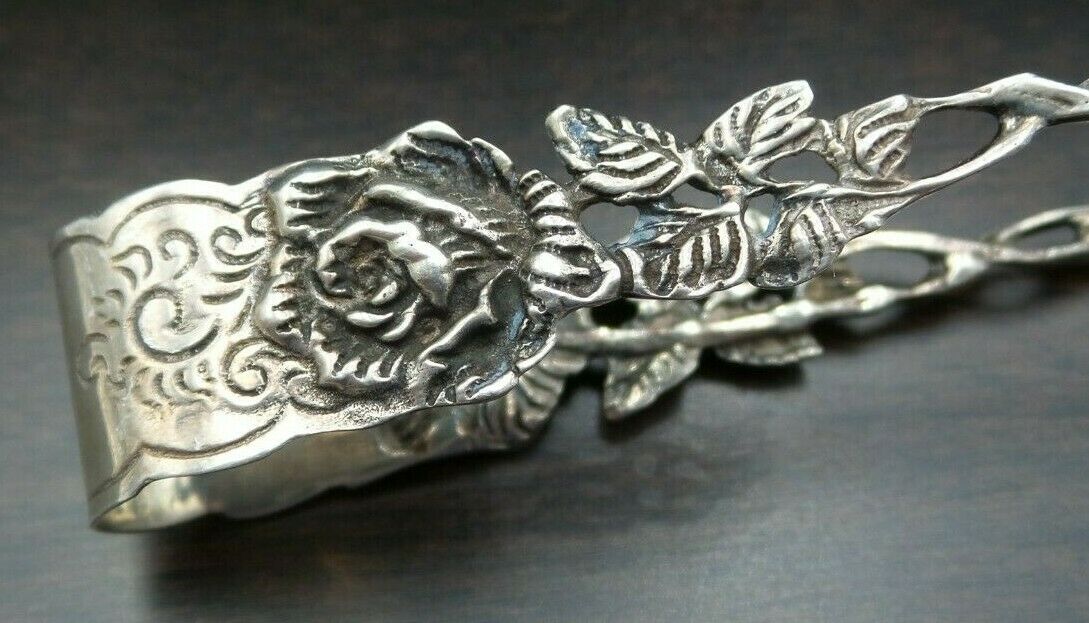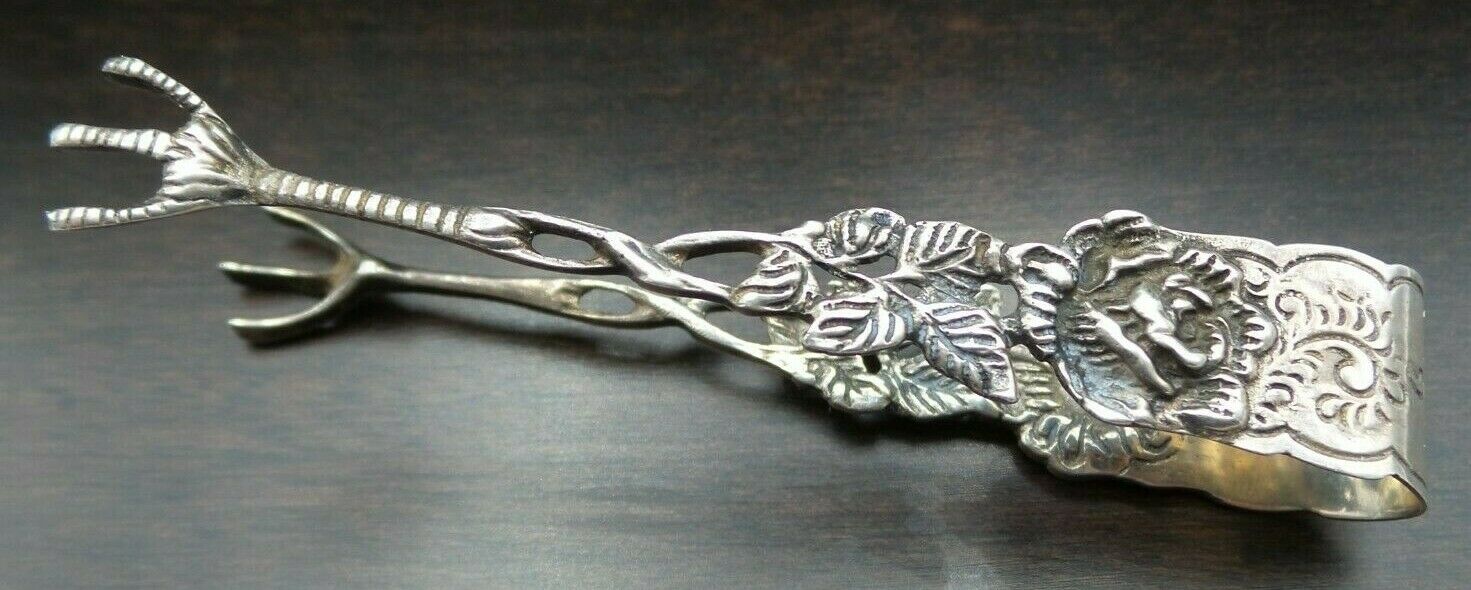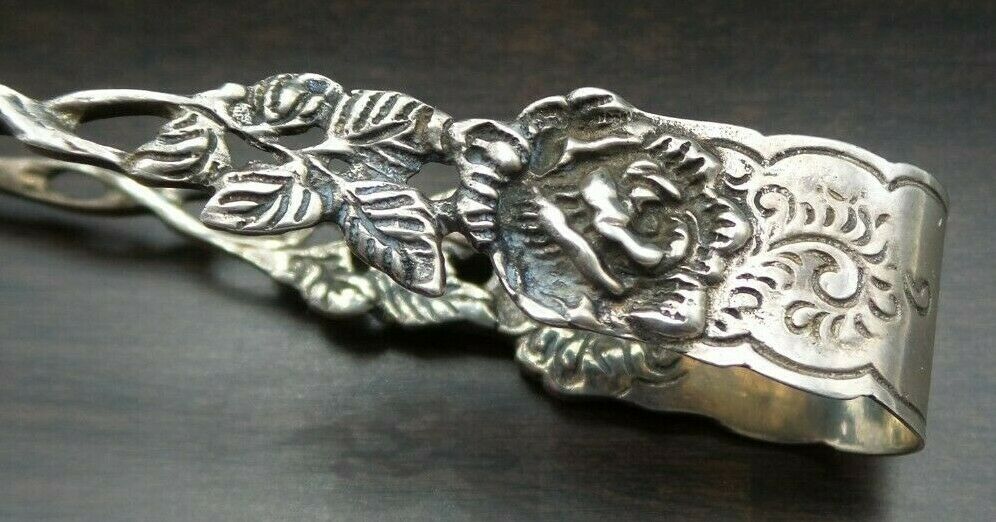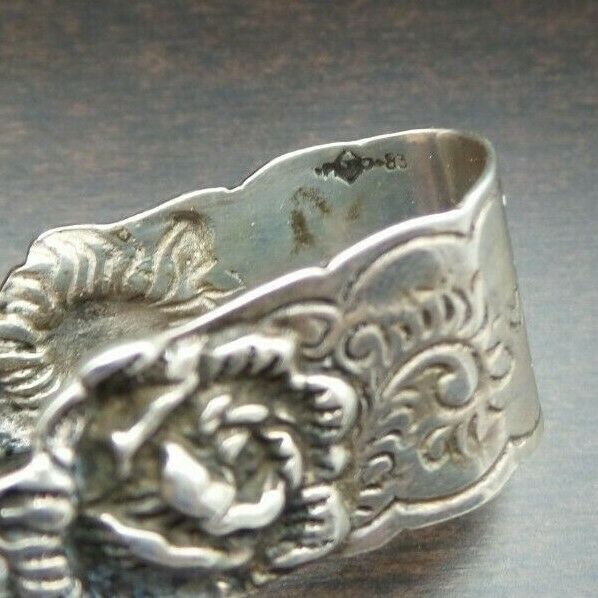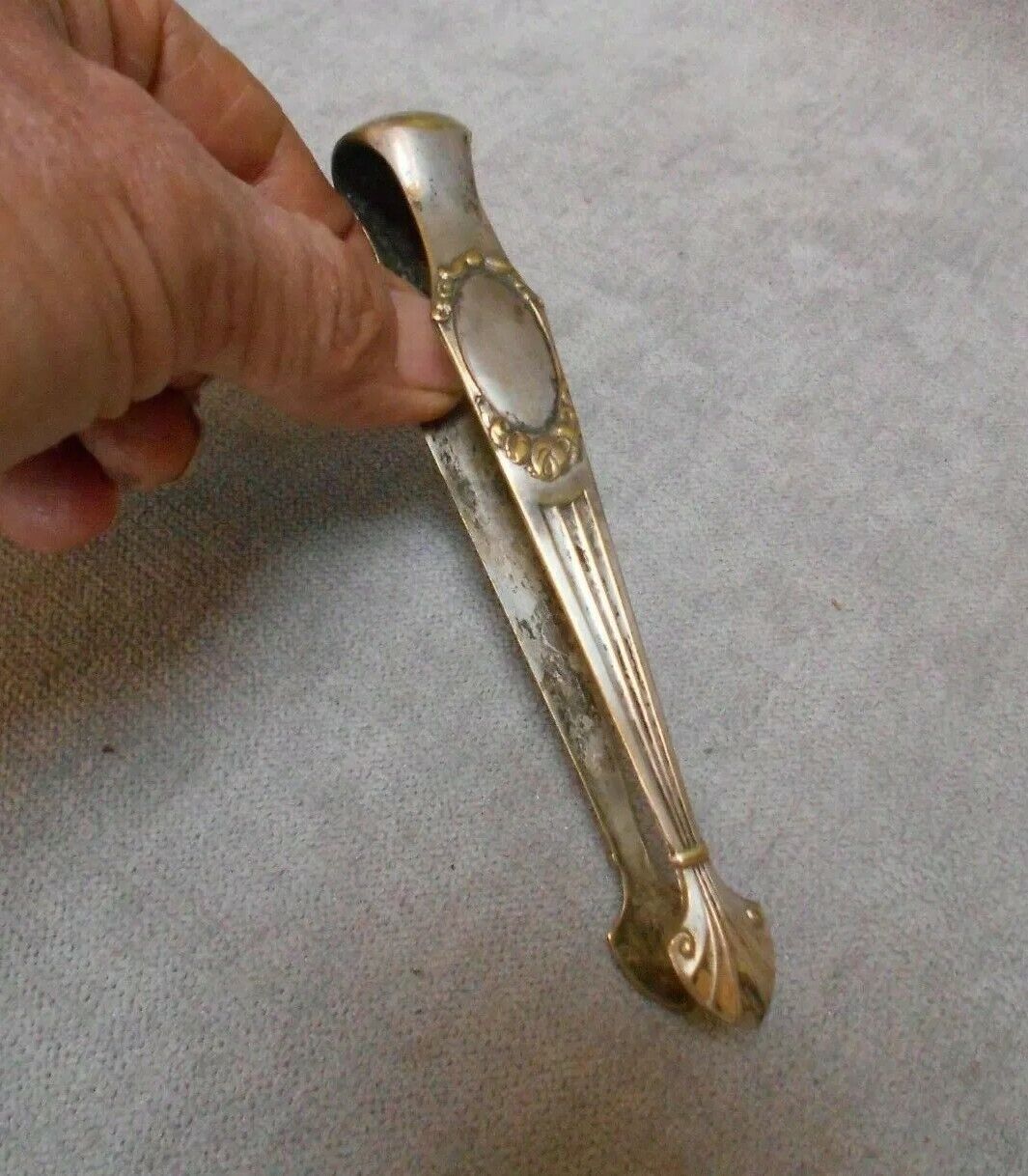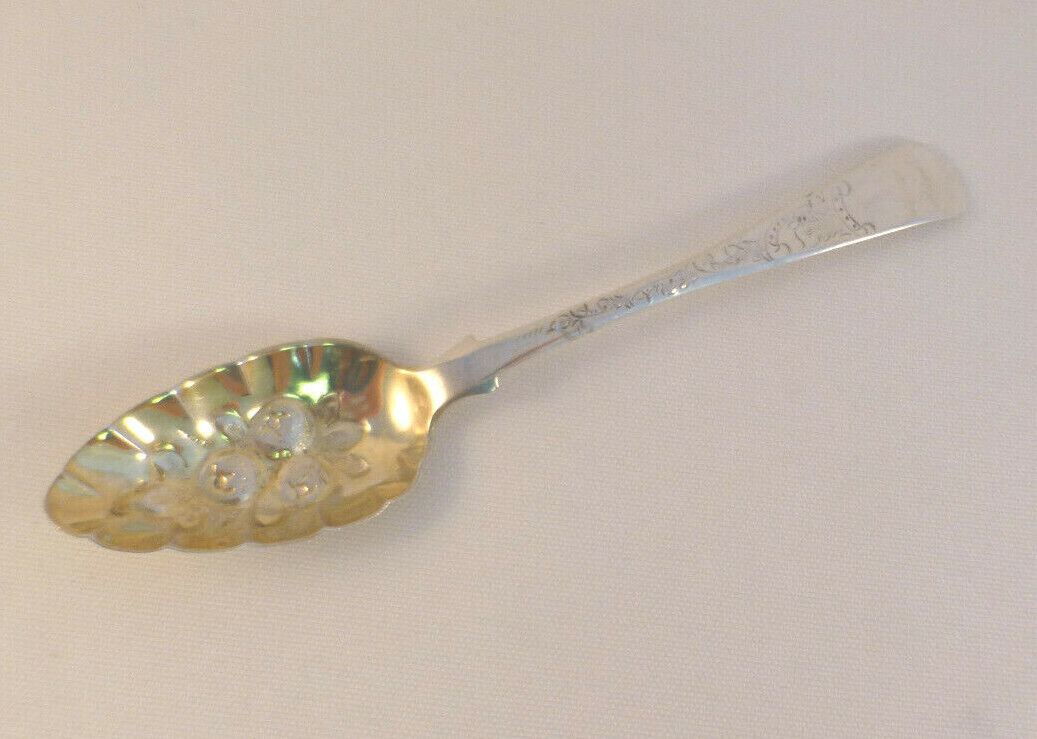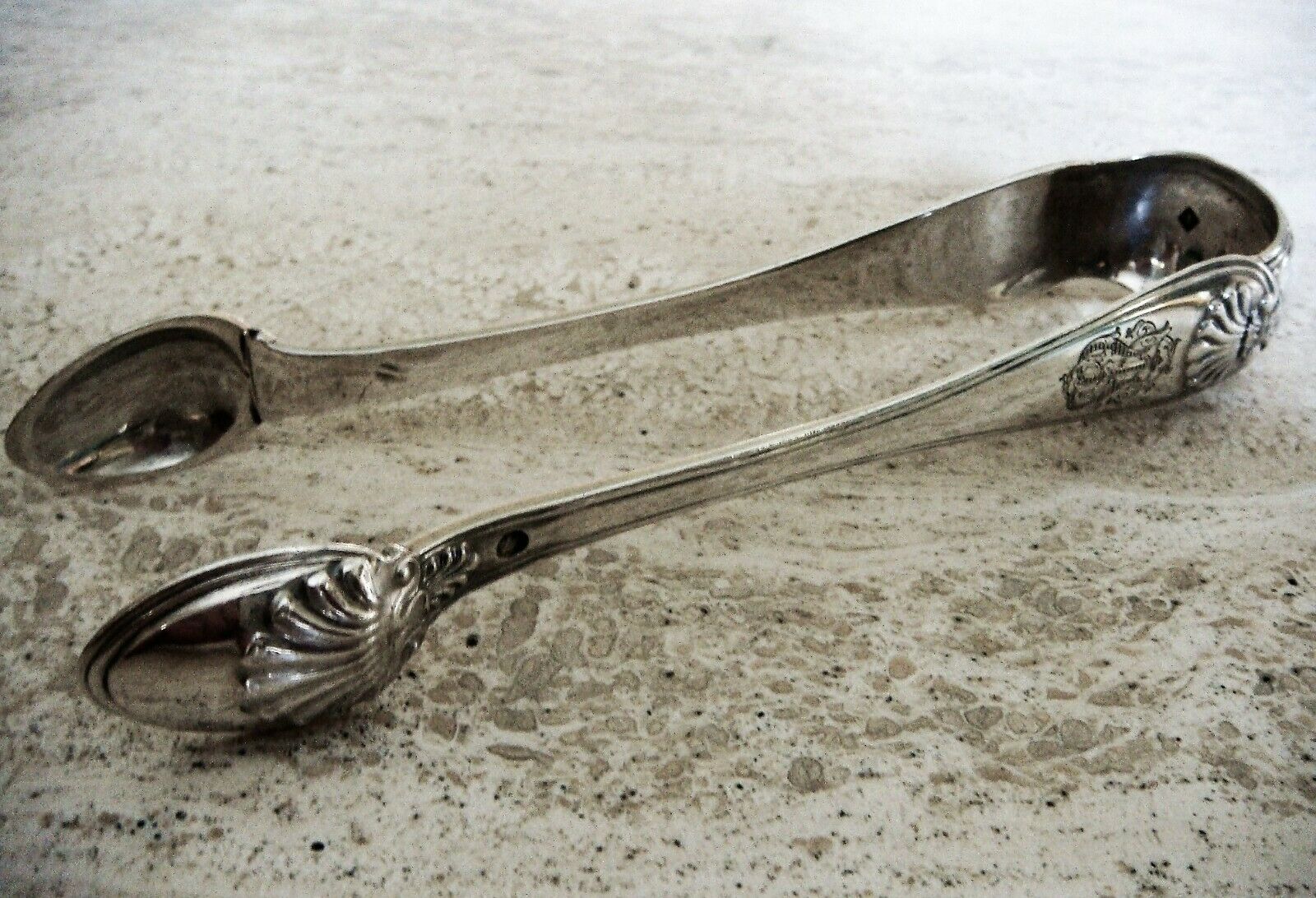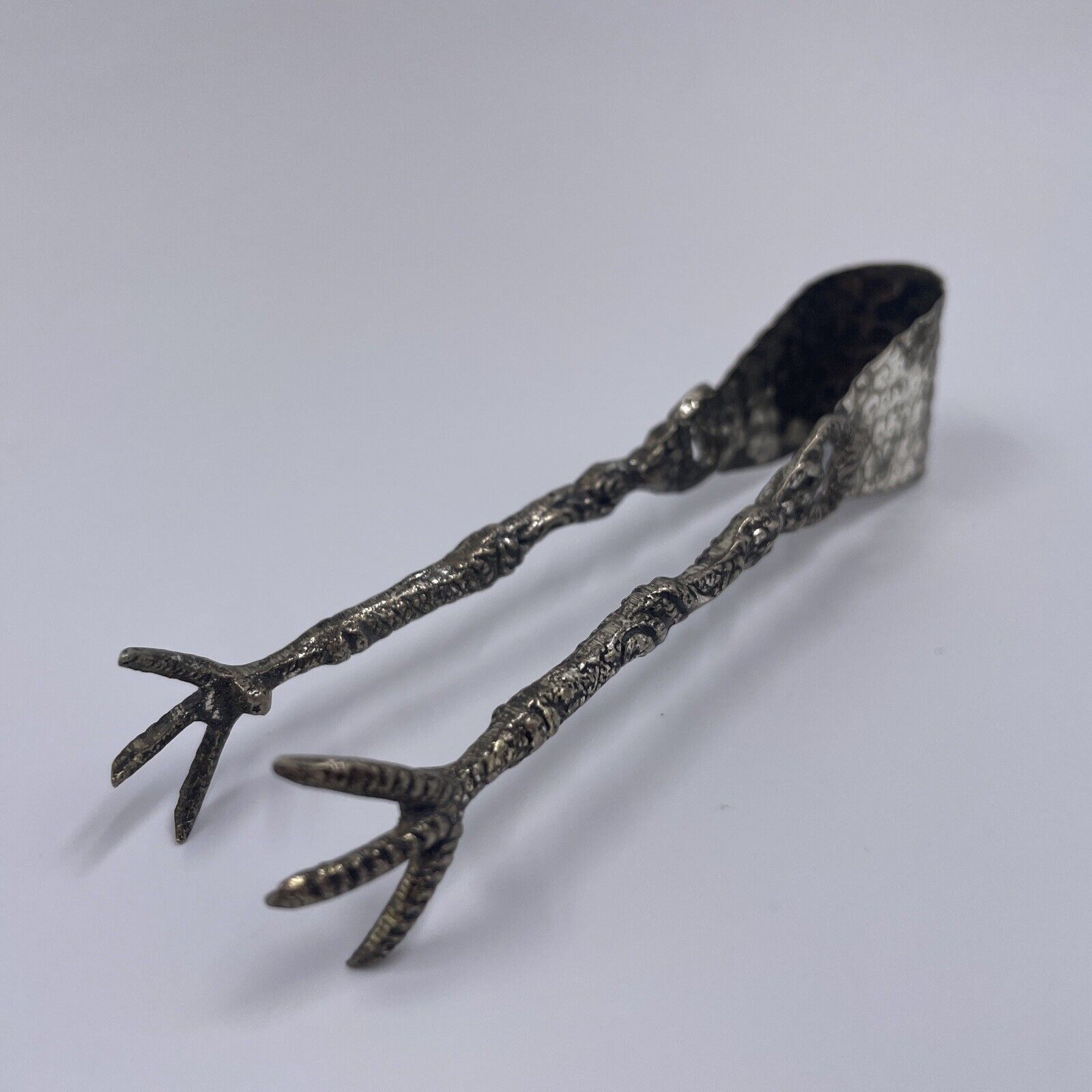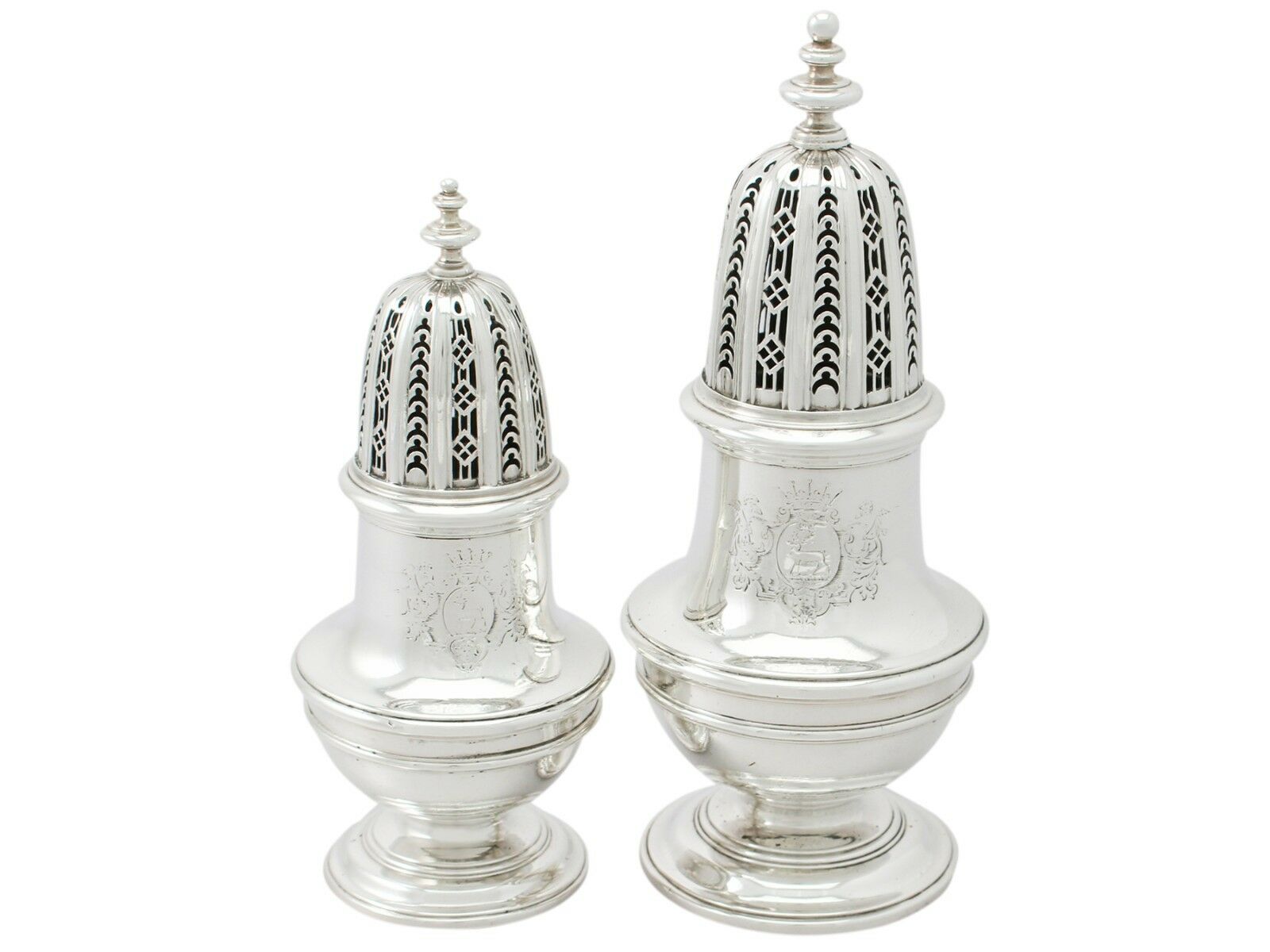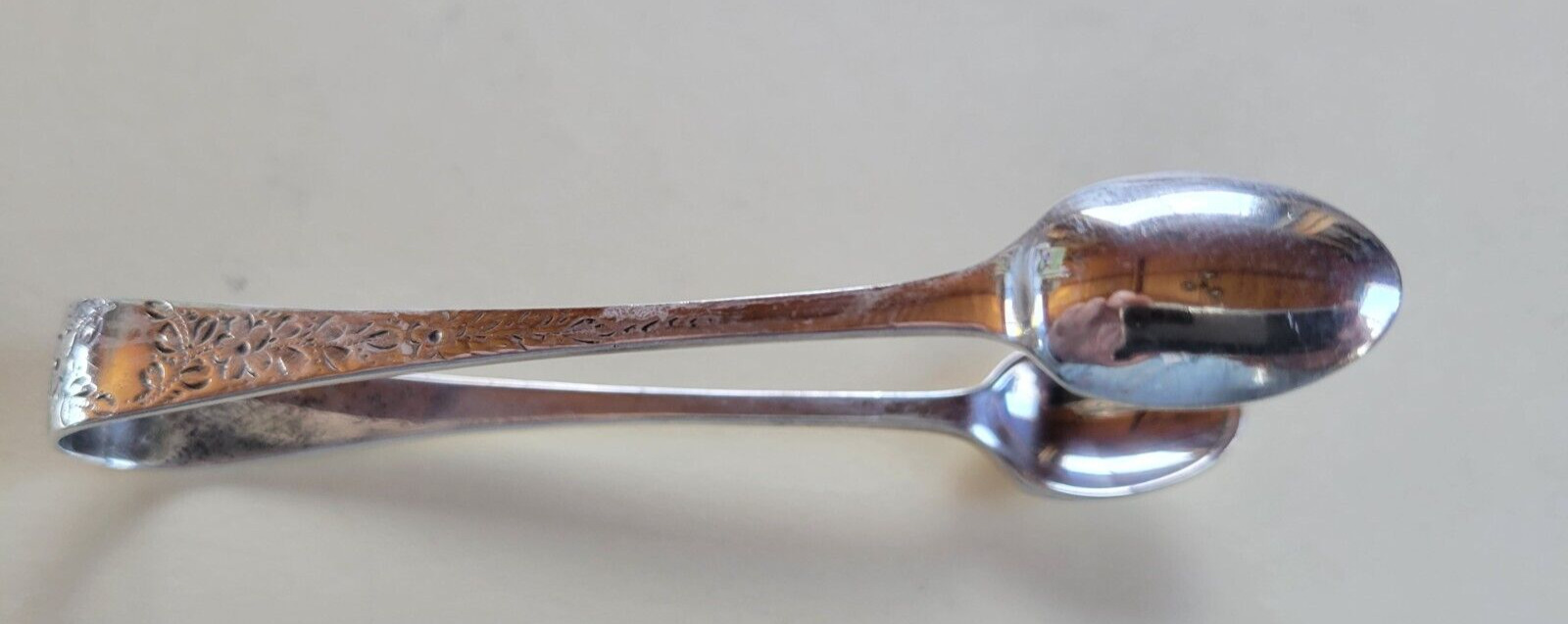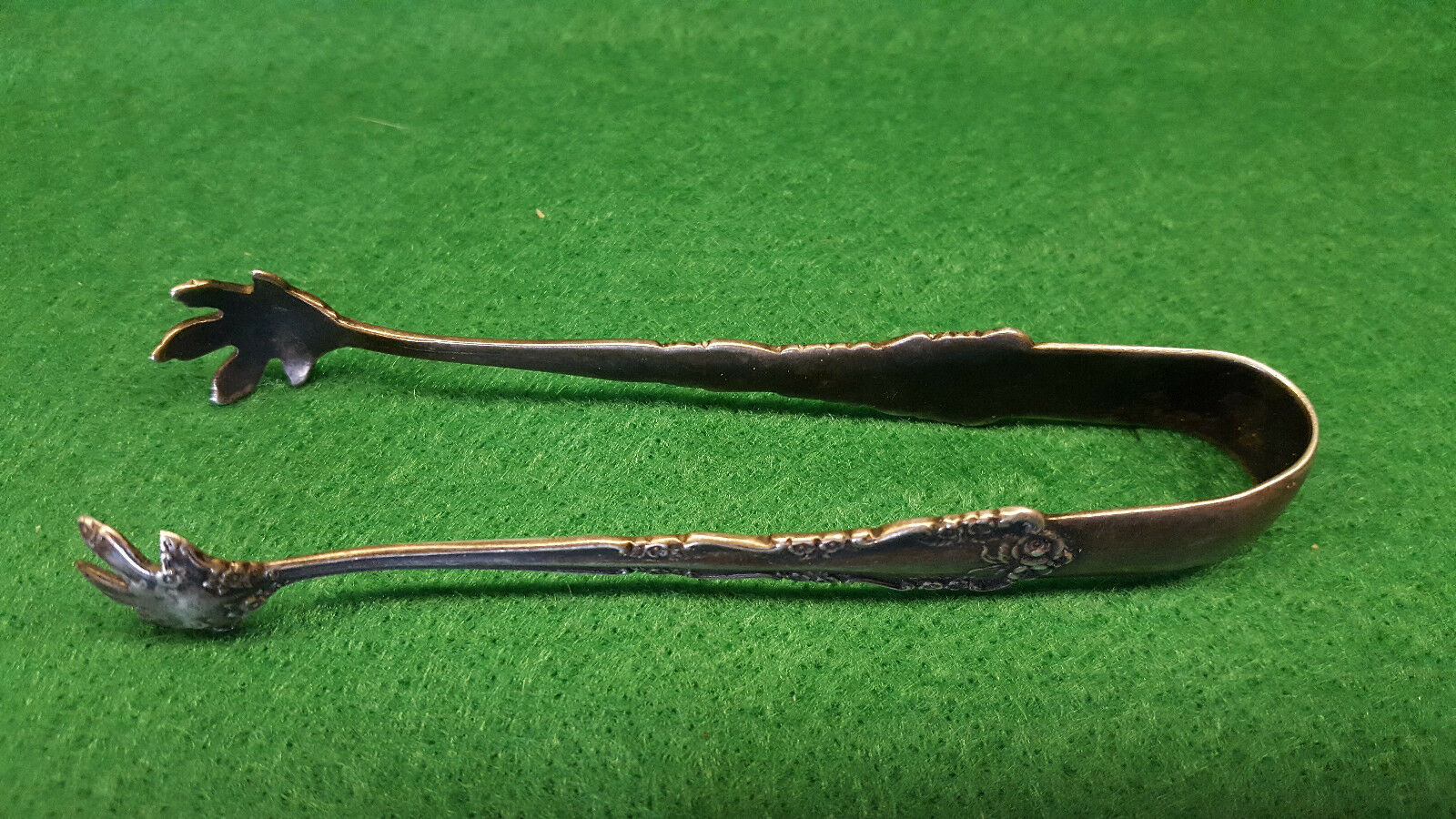-40%
Vintage Albert Bodemer Germany 835 Silver "Thousand-Year Rose" Sugar Tongs
$ 31.15
- Description
- Size Guide
Description
Beautiful Vintage Albert Bodemer Germany 835 Silver "Thousand-Year Rose" Sugar TongsA beautiful piece, made in Germany around the 1950s by Albert Bodemer, featuring ornate "Rose of Hildesheim" patterns and bird foot tips.
Measures 3 1/2" long and weighs 13.7 grams.
Very good condition. Hallmarked "835" for a common Central European silver standard of 83.5% silver. Also has Albert Bodemer's makers mark "ALBO".
Great piece!
About the "Thousand-year Rose":
The "Thousand-year Rose" is also known as the "Rose of Hildesheim". It grows on the apse of the Hildesheim Cathedral, a Catholic cathedral in Hildesheim, Germany, that is dedicated to the Assumption of Mary.
The rose that climbs on the wall of the cathedral's apse is believed to be the oldest living rose in the world. A "rosa canina", commonly known as a wild dog rose, grows against the eastern apse of the cathedral. The rose bush reaches a height of around 10 meters (33') and documentation verifies its age at 700 years at the least. Slight variations arise in the tale of the establishment of the diocese by King Louis the Pious at Hildesheim in 815 but the rose bush is a common theme in all versions. The cathedral was destroyed by Allied bombers in 1945 during the Second World War, but the roots of the rose bush survived and it blossomed again among the ruins. According to legend, while the rose bush flourishes, Hildesheim will prosper.
A poem about the rose was published in 1896. In the early twentieth century, after visiting the cathedral and seeing the rose, author Mabel Wagnalls was inspired to write a book, which went on to form the basis of a silent film. The Hildesheim rose has also inspired artistic designs, for instance in tableware and silverware.


